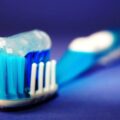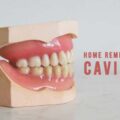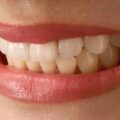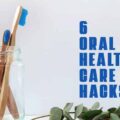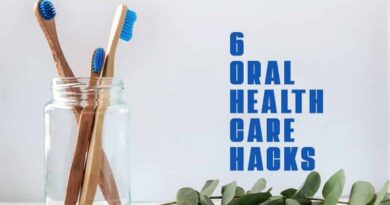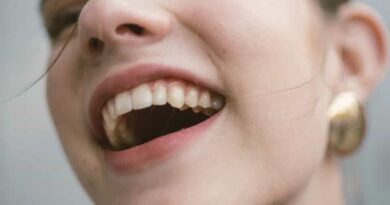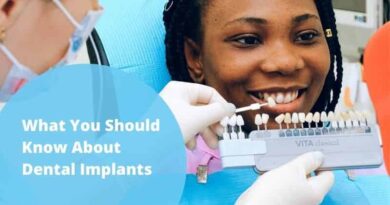Acidic Erosion: Symptoms, Causes, and Treatment
Though it starts relatively simple and takes some time to develop fully, acidic erosion is one of the most severe dental conditions. It can take a toll on your overall health, ruin your self-esteem, and cost you hundreds of dollars in treatment. Finding ways to recognize, treat, and prevent it is, thus, rather important.
Below, we will go over the symptoms and treatment options of acidic erosion, including teeth implants, and tell you everything you need to know about dealing with this serious condition. Read on!
Table of Contents
What Is Acidic Erosion?
In this context, acidic erosion refers to the weakening of the outer layer of your tooth caused by acids.
This outer layer of your tooth is called the enamel, and it acts as a shield between your teeth and anything that comes in contact with them. It protects your teeth from different chemicals and foods you consume, as well as from the acids in your bodily fluids.
Enamel is one of the hardest natural materials, but even such materials can wear after some time without proper care. This wearing and subsequent tearing of the enamel is called acidic erosion.
Acidic erosion can lead to different dental conditions, including teeth stains, sensitivity, cavities, and even tooth death. It is for this reason that learning what causes acidic erosion is so essential.
Read: Teeth Whitening
The Causes of Acidic Erosion
Your Diet
The leading causes of acidic erosion(1) are the foods and drinks you consume. If these foods and beverages contain too much acid, your saliva will not neutralize all of it. As a result, you will have an increased amount of bacteria and acidic fluid in your mouth.
If you pair foods high in acids with irregular or inadequate dental hygiene, the problem becomes severe. Your saliva cannot break down the acids, and you are not removing it from your mouth by brushing your teeth and flossing. In such cases, the acids cling to your teeth and start slowly eating away at your enamel.
With time, the acid starts breaking down your enamel, and it becomes weaker and softer. As soon as it starts wearing, it becomes more sensitive and prone to injury, meaning that your teeth aren’t as protected as they were before. That is when other dental issues start developing.
Read: Teeth Whitening Methods
Other Causes
Apart from your diet, several other factors can cause acidic erosion, including teeth grinding, chronic acid reflux, low salivary flow, regular use of certain meds, and eating disorders.
As you can see, most of these causes are something you cannot control, and acidic erosion is just a side effect. However, even in cases like these, it’s possible to treat and prevent this condition before it can cause severe damage.
Acidic Erosion: Treatment and Prevention
Diet Changes
Since the foods and drinks you consume have a significant role in acidic erosion, changing your diet can help fight this condition. Going easy on sugary foods and beverages can go a long way in this case.
The same goes for wine, coffee, different condiments and snacks, and foods high in acids. Cutting back on these will ensure the acid levels in your mouth are normal and that your saliva can do its job with no issues.
Of course, we don’t suggest you completely stop consuming any of the foods and drinks mentioned above. However, moderation is key, and it can help save your teeth.
Read: Foods That Can Damage Your Teeth
Good Oral Hygiene
Diet changes and visits to the dentist mean little if you do not brush your teeth and floss regularly. Doing so will ensure any acid residue is removed before it can cause trouble and stick to your enamel.
In patients with a high risk for acidic erosion, flossing(2) is rather important. If you floss every day, preferably at night, before bed, you will reduce the risk significantly. Add some mouthwash to the mix, and you’ll have first-class protection against enamel erosion.
Habit Changes
Cutting back on certain activities can also help prevent acidic erosion. These activities include smoking, excessive gum chewing, and frequent snacking. Apart from these, finding substitutes for certain meds that cause acidic erosion could also help. Of course, that’s only an option if such an alternative exists and your doctor approves.
Read: Phytic Acid Foods
Dental Procedures
In some cases, prevention alone cannot help solve the problem of acidic erosion. If the erosion is too advanced and the damage to your tooth too severe, you’ll have to find alternative solutions. That is where dental procedures come in, and dental implants are, perhaps, the best way to go.
A dental implant is a surgical component that supports a dental prosthesis such as a bridge, crown, or denture. Such a component is necessary if the erosion is so severe that it destroys your roots and loses your tooth.
Put, these implants go into your jaw, and they serve as new roots for your teeth. Then, your dentist can attach a dental prosthetic to them, restoring your teeth to their former glory.
This procedure is generally not too painful and is quite long-lasting. Both the implant and the prosthetic are tailored to you and your needs, so they will fit you nicely and solve all your dental issues.
Apart from improving your health, dental implants will also do wonders for your self-esteem. You will no longer have to hide your smile or worry about your appearance, as the procedure will ensure you look healthier and more beautiful than ever.
Read: Oral Health Problems
A Few Parting Words
As you have read, acidic erosion is a rather severe dental condition. Knowing its causes, symptoms, and treatment options is of utmost importance for keeping yourself and your teeth healthy.
Apart from diet and habit changes and good oral hygiene, different dental procedures can help treat this condition. Consult your dentist about all of them and develop a treatment plan best suited to your needs and preferences. That way, you will be sure you are doing the best for your oral and overall health.


